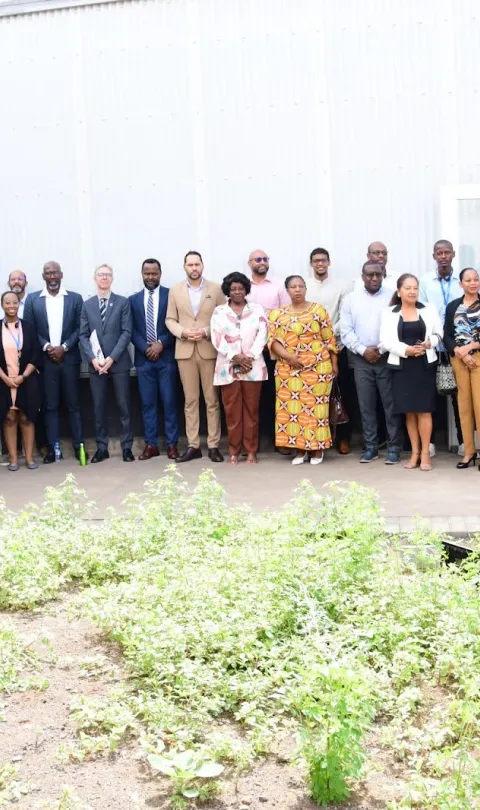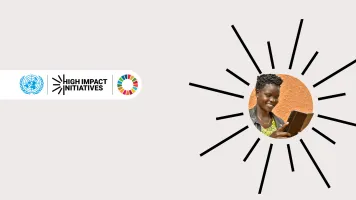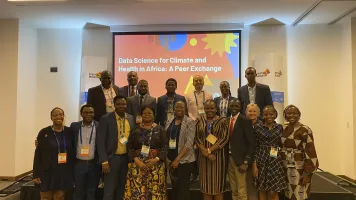From September 18-20, 2024, the Global Partnership for Sustainable Development Data, in collaboration with Cabo Verde's National Institute of Statistics (INE), the National Council of Statistics (CNEST), and UN Cabo Verde, under the direction of the National Directorate of Planning, Ministry of Finance, hosted a transformative event in Tech Park, Praia, Cabo Verde. This three-day workshop focused on leveraging the Power of Data and Capacity Accelerator Network initiatives to foster cross-sector and multi-stakeholder national data partnerships, strengthen data governance, and advance digital transformation—particularly in addressing the urgent impacts of climate change on public health and for achieving the Sustainable Development Goals (SDGs).
The Power of Data: Driving climate and health solutions
Cabo Verde has long recognized the critical importance of using data to drive decision-making, especially as a Small Island Developing State (SIDS) facing significant climate vulnerabilities, including droughts, tropical depressions, and ocean acidification. This event aimed to further unlock the power of data by exploring how improved data governance, digital transformation, and data-driven interventions can strengthen national resilience and inform policy.
The workshop was an important platform for showcasing Cabo Verde’s commitment to the Power of Data initiative, following their launch in March 2024. The relationship between Cabo Verde and the Global Partnership dates back to 2020 when Cabo Verde joined as a champion of the Inclusive Data Charter (IDC). These frameworks are now being integrated into the country's data system to enhance data governance and partnership to ensure that data production, analysis, and utilization are inclusive, equitable, and representative of all population groups.
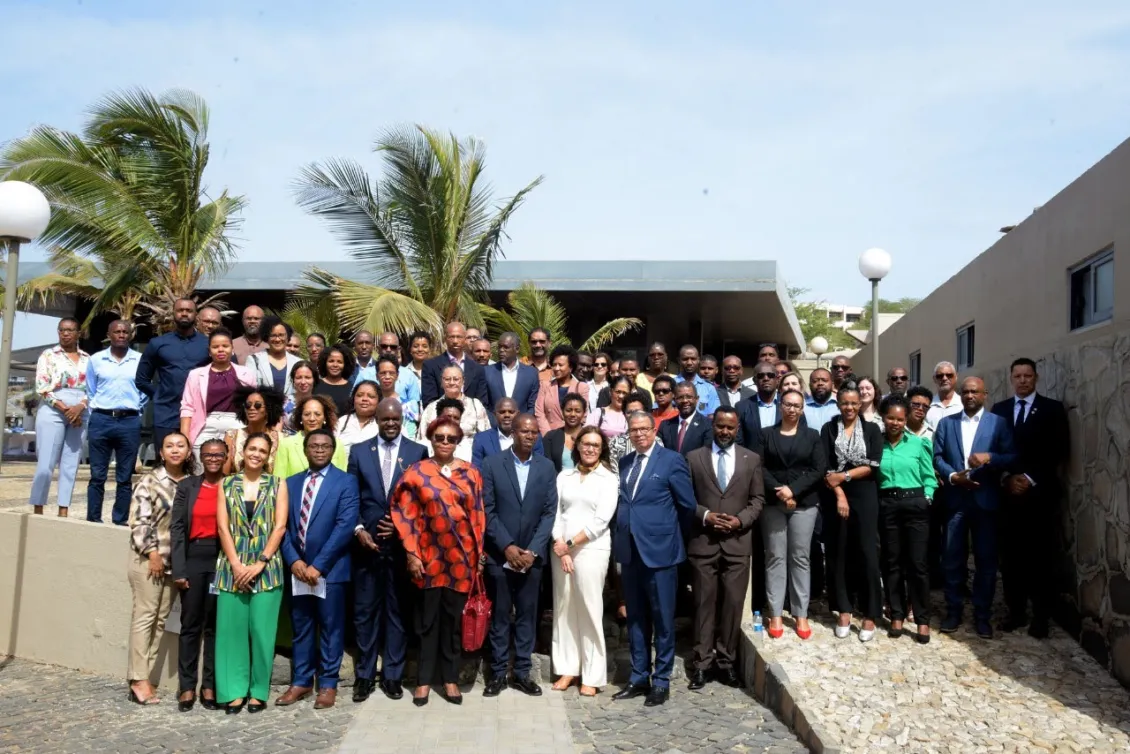
Cabo Verde’s Launch of the Power of Data, Mar 18, 2024
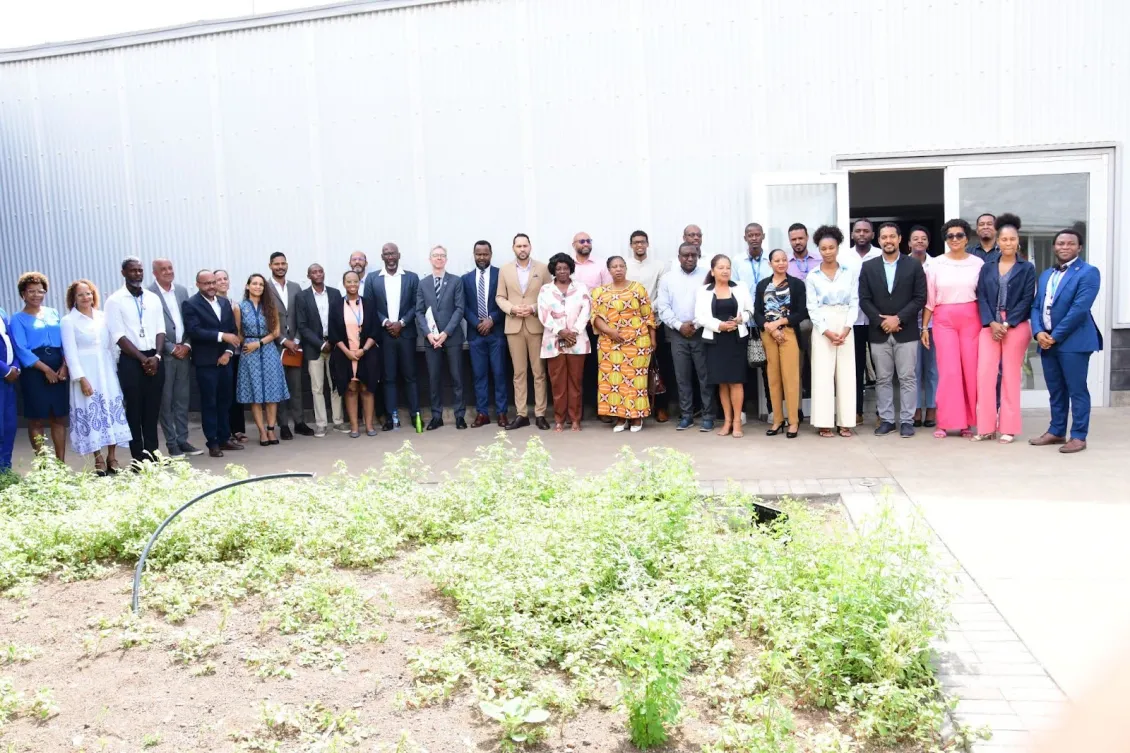
Technical Workshop on Power of Data and Capacity Accelerator Network program in Cabo Verde, Sept. 18, 2024
Bringing Lusophone African countries into the fold
One of the event’s significant achievements was introducing the Power of Data initiative to three Lusophone African countries: Guinea-Bissau, São Tomé and Príncipe, and Mozambique. The event brought together representatives from key institutions in an effort to foster long-term collaboration and knowledge exchange, enabling them to share good practices and learn from Cabo Verde’s progress.
These countries face similar climate and environmental challenges, yet their capacity to generate and use data for policy development varies. Initiating partnerships in the region will allow these nations to work together to build capacity in environmental and climate change statistics, inclusive data governance, and the use of data to interrogate the climate and health nexus.
Advancing data skills through the Capacity Accelerator Network
In addition, the workshop featured a Capacity Accelerator Network (CAN) training session on data storytelling and visualization. This hands-on workshop, in partnership with data4change, emphasized the importance of translating complex data into compelling narratives that policymakers and the public can easily understand. The session provided participants with the fundamentals to present data in ways that could shape public opinion, drive action, and support evidence-based interventions across sectors.
Partnerships for sustainable development
The Cabo Verde event emphasized the importance of national and regional data partnerships as a foundation for achieving the SDGs. Discussions highlighted how unlocking access to data could drive significant advances in public health, climate adaptation, environmental sustainability and the SDGs broadly. The role of data in policy formulation, particularly in addressing the health impacts of climate change, was a key focus of the dialogues.
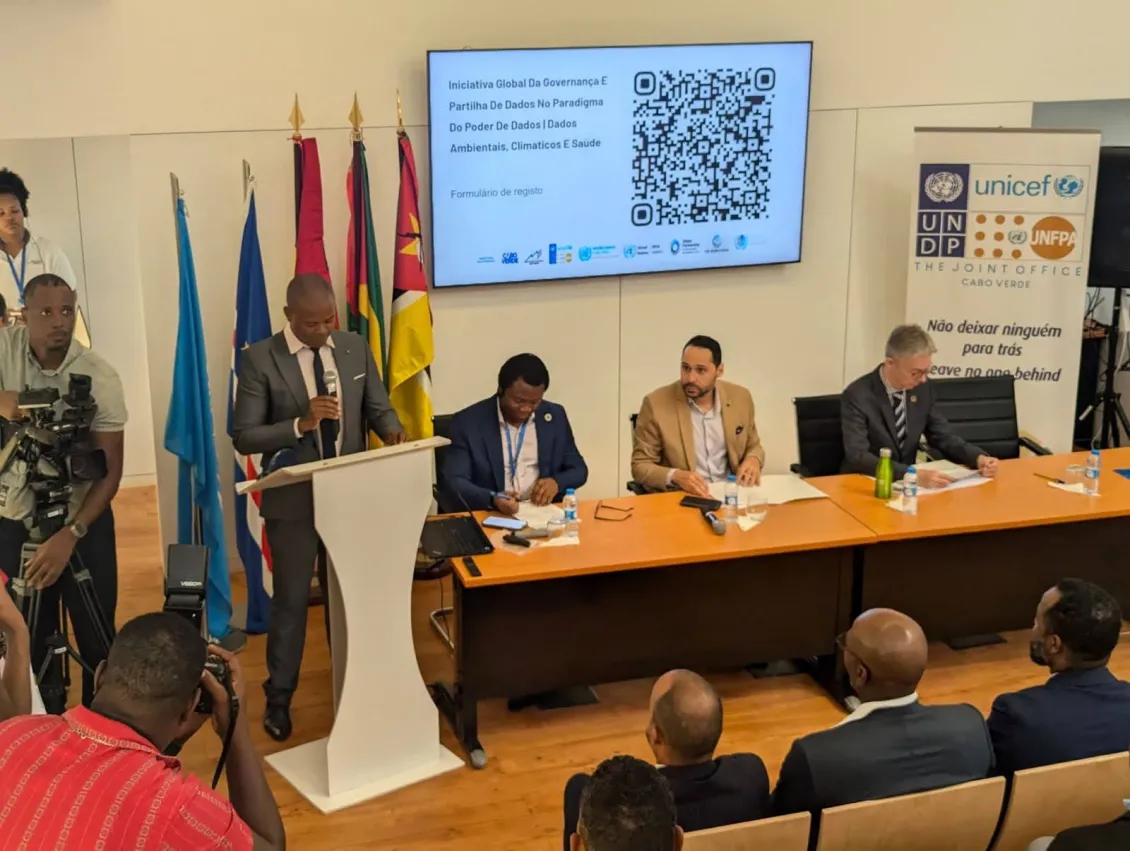
(l-r) President of CNEST, Carlos Alberto Mendes; Snr. Africa Regional Manager of the Global Partnership, Victor Ohuruogu; Cabo Verde’s Secretary of State for Digital Economy, Mr. Pedro Lopez; and the UN Resident Representative of UNFPA, UNDP, UNICEF Joint Office, Sir David Marten
As part of the workshop, Cabo Verde presented its framework for strengthening its statistical system (SEN) and using data to implement the World Health Organization's Framework for Building Climate-Resilient and Sustainable Health Systems in Africa (2024-2033). This framework aims to build capacities within PALOPs (Portuguese-speaking African Countries) to monitor, mitigate, and adapt to climate and environmental impacts on public health while promoting inclusive data governance to ensure no one is left behind.
A path forward for Lusophone Africa
The event concluded with a shared commitment from participants to continue collaboration on these critical issues. By fostering relationships and knowledge-sharing between Lusophone countries, the Global Partnership hopes to create a lasting impact in building data capacities and driving sustainable development in the region.
The success of this engagement marks a key milestone in expanding the Power of Data to address impact of climate change on public health, build capacity for developing environment and climate change statistics and align their data system with the principles of the Inclusive Data Charter across lusophone Africa. As Cabo Verde continues to lead by example, there is hope that the progress made in data governance, digital transformation, and climate resilience will be replicated across the PALOPs, leading to more effective, data-driven policies and a stronger commitment to sustainable development.
